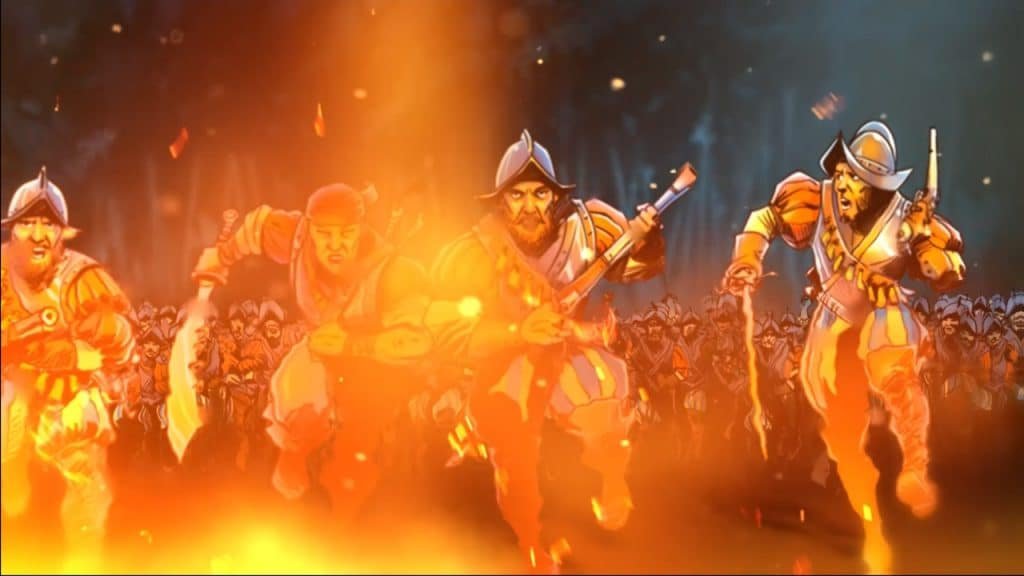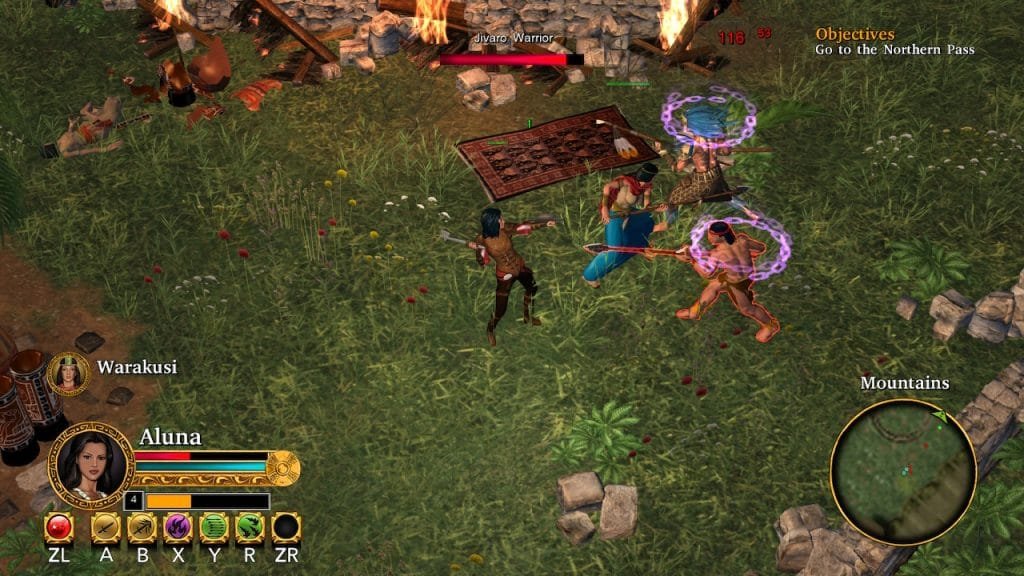Quick View
Release Date: May 26, 2021
Price: $19.99
Rating: Everyone 10+
Platform: Steam, Switch (Playstation and Xbox at a later date)
Geek to Geek Media was provided with a copy of this title.
I wasn't familiar with the character of Aluna when I booted up the new game, Aluna: Sentinel of the Shards, but the opening cinematic hooked me on the idea right away. It introduces her as a child of gods – in the vein of Hercules – and drops you into her story right away. Throughout Aluna: Sentinel of the Shards, you'll explore the jungles of South America in an isometric action game that throws back to some 90s classics, but with very welcome difficulty options.
A 16th-Century Latina Superhero

An eight-issue comic book series serves as the precursor to Aluna's video game debut. That story sees her uncover her demigod abilities as she travels back to her native home of Colombia to fight against oppression in the 16th century. At the start of this game, Aluna has lost some of the powers granted by her heritage. Meanwhile, some sort of magical corruption is spoiling her world.
The opening sees you battling monkeys, wolves, and even plants that have fallen under an evil influence. You get into tons of these small encounters as you make your way home to your village. No sooner do you arrive than a villain shows up and casts a spell that turns your own warriors against you. Basically, this game is always ready to throw enemies at you at a moment's notice.
Seeing Aluna basically slaughtering her own village after they fell under the spell was odd. The story isn't really concerned with interrogating that side of things. Instead, the focus is on the heroine's quest to reclaim her power and eliminate the source of the corruption around her.
Throwback Isometric ARPG Gameplay

At the start of the game, Aluna only has a few basic abilities available to her. She can do a basic and strong attack, and dodge out of the way of enemies. It doesn't take long to start acculmilating gear in classic ARGP style. Each piece has all sorts of unique modifiers to make stats go up and down by tiny percentages. Thankfully, the menus are good about telling you exactly which stats will go up and/or down when you change gear. Even folks who get overwhelmed by those options should be able to manage equipment swapping.
By the time I'd reached the village, I'd already started unlocking new combat abilities as well. I ended up favoring a ranged weapon for my default attack. Then I mapped special abilities to the face buttons, R, and ZR that focused on slowing my enemies down. In short, I made a build that allowed me to start a fight from a distance and then run away when baddies got too close to me.
That tactic seemed to confused the game's AI a few times. Enemies would just give up on chasing me. They just stood there, letting me take my time shooting them from a distance until they died. Sure, it did feel a little cheap to get kills that way. Since ARPGs can be notoriously difficult, I didn't mind playing with a bit of cheese.
Difficulty Options That Welcome All Players

On the subject of difficulty, I'm delighted to share that Aluna aims to welcome all players with its options. I've been playing on the standard difficulty so far, and it hasn't been too difficult for me. If you're a seasoned player of Diablo, Torchlight, or the like, you'd probably be happier starting it up on Hard. On the other hand, an Easy and even Story Mode option make it welcoming for new players. I specifically appreciate that the Story Mode assures you that you don't have to stress about equipping the right gear because I know that can get overwhelming fast.
The best part of these difficulty options is that you can change your level at any time! The game incentivizes you to play on tougher rewards, by granting bonus XP, gold, and gear on Hard mode and fewer chances of finding legendary loot on the easier modes. Other than that, it doesn't punish players in any way for playing how they want to play.
First Impressions Wrap Up

I'm liking Aluna a lot so far. The gameplay feels comfortable and familiar to me, even if it doesn't seem to be doing a whole lot new in the ARPG space. The game has opted for a visual style that throws back to older ARPGs too, which doesn't quite do it for me. Instead, its big hook is a setting and perspective that is extremely underrepresented in the video game industry. A lot of the story is told through cutscenes that use a motion-comic style that connects really well with the comic origins of the character, and they look fantastic!
I will probably keep playing this game, but I wouldn't be surprised if I end up taking advantage of its forgiving difficulty system when the going gets tough. I want to see where the story goes and might end up prioritizing that over keeping the gameplay challenging.

